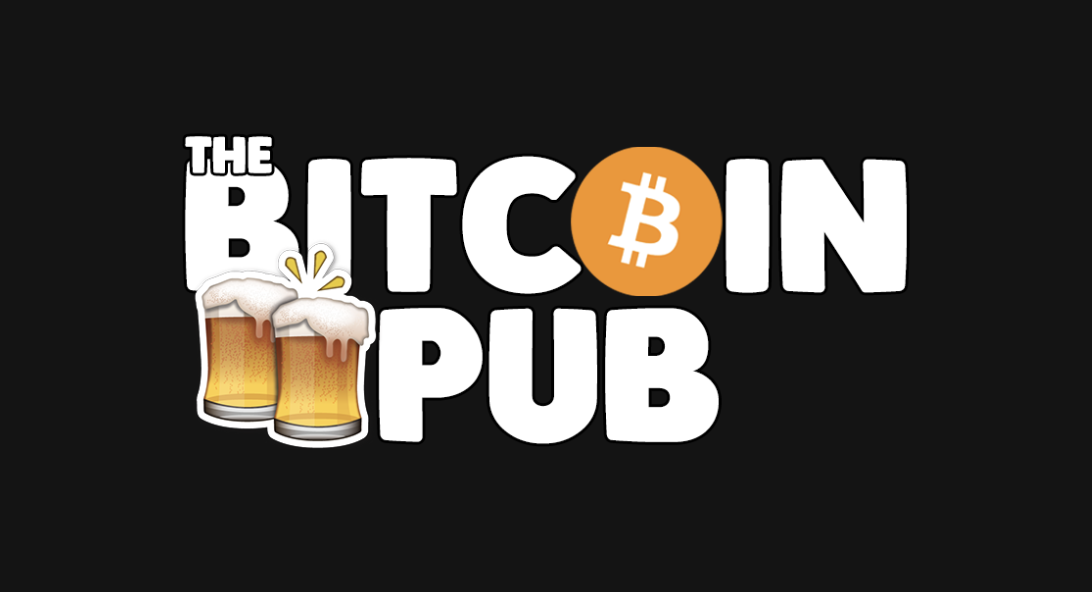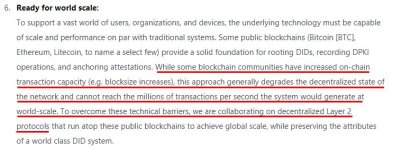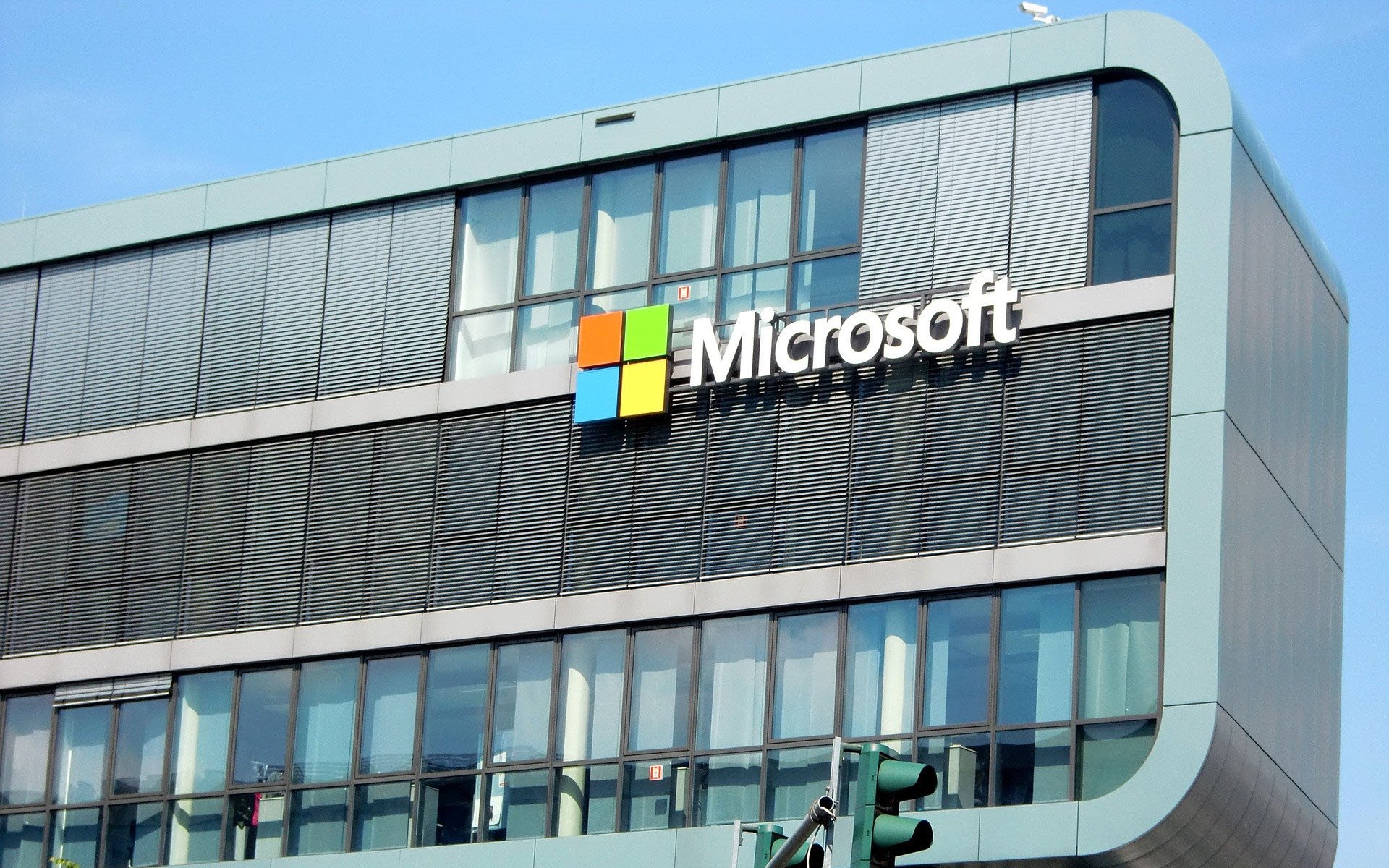via Forbes
In a new post today, Microsoft announced their embrace of public blockchains, such as Bitcoin and Ethereum, for use in decentralized identity systems. Initially, the longtime tech giant will support blockchain-based decentralized IDs (DIDs) through the Microsoft Authenticator app.
Unlike the forms of identification used in the world today, a decentralized identity system is not controlled by any single, centralized institution such as a government or large tech company. The idea is that a decentralized identity system removes the possibility of censorship and gives an individual full control over their identity and reputation.
After looking at various types decentralized identity systems, Microsoft turned to public blockchains due to their ability to enable privacy, self-ownership, and permissionless access.
“After examining decentralized storage systems, consensus protocols, blockchains, and a variety of emerging standards we believe blockchain technology and protocols are well suited for enabling Decentralized IDs,” today’s announcement post from Microsoft says.
Identity is one of the long-touted use cases of blockchain technology that does not have anything to do with payments or currency. In today’s post, Microsoft points to Bitcoin, Ethereum, and Litecoin as three specific platforms that are suitable foundations for DIDs.
Dozens of blockchain projects related to identity have popped up over the years, with Blockstack ID and uPort being two of the most well-known examples.
Microsoft plans to work with DID method implementations, which follow a specific standard outlined by a W3C working group. However, the tech giant has not disclosed specific DID method integrations at this time.
So why is a public blockchain a good fit for the root of a decentralized identity system? Much like Bitcoin itself, it comes down to removing trust in counterparties. No government or other centralized entity has control over or can censor identities that are rooted in a public blockchain.
While it may be possible to use a federated model where a number of specific parties are trusted rather than a centralized institution, a public blockchain ensures that the base layer of these identity protocols is sufficiently decentralized and incorruptible.
In the past, critics have argued that identity systems built on public blockchains will be too expensive and difficult to scale, but today’s post from Microsoft points out that layer-two systems can be used to reduce the necessary number of costly on-chain interactions. This is somewhat similar to how the Lightning Network can be used to better scale Bitcoin’s payments use case.
The post from Microsoft dismisses simple block size increases as an insufficient scaling approach to address the volume demands of such a system. Although not called out by name, Bitcoin Cash is the clearest example of such a move.
“While some blockchain communities have increased on-chain transaction capacity (e.g. blocksize increases), this approach generally degrades the decentralized state of the network and cannot reach the millions of transactions per second the system would generate at world-scale. To overcome these technical barriers, we are collaborating on decentralized Layer 2 protocols that run atop these public blockchains to achieve global scale, while preserving the attributes of a world class DID system,” says the post from Microsoft.
At this point, it’s unclear what exactly Microsoft gains from supporting the concept of decentralized IDs. However, some inferences can be made from the current state of the Internet.
The most obvious use case for DIDs within Microsoft products would be LinkedIn, which could be viewed as a sort of a reputation system for an individual’s past education and work experience.
Longer term, this may be a play from Microsoft in the decentralized Internet space where they’re offering themselves as a company that will not build their financial future around spying on their userbase, which is effectively what is seen from the likes of Google and Facebook.
In a new post today, Microsoft announced their embrace of public blockchains, such as Bitcoin and Ethereum, for use in decentralized identity systems. Initially, the longtime tech giant will support blockchain-based decentralized IDs (DIDs) through the Microsoft Authenticator app.
Unlike the forms of identification used in the world today, a decentralized identity system is not controlled by any single, centralized institution such as a government or large tech company. The idea is that a decentralized identity system removes the possibility of censorship and gives an individual full control over their identity and reputation.
After looking at various types decentralized identity systems, Microsoft turned to public blockchains due to their ability to enable privacy, self-ownership, and permissionless access.
“After examining decentralized storage systems, consensus protocols, blockchains, and a variety of emerging standards we believe blockchain technology and protocols are well suited for enabling Decentralized IDs,” today’s announcement post from Microsoft says.
Identity is one of the long-touted use cases of blockchain technology that does not have anything to do with payments or currency. In today’s post, Microsoft points to Bitcoin, Ethereum, and Litecoin as three specific platforms that are suitable foundations for DIDs.
Dozens of blockchain projects related to identity have popped up over the years, with Blockstack ID and uPort being two of the most well-known examples.
Microsoft plans to work with DID method implementations, which follow a specific standard outlined by a W3C working group. However, the tech giant has not disclosed specific DID method integrations at this time.
So why is a public blockchain a good fit for the root of a decentralized identity system? Much like Bitcoin itself, it comes down to removing trust in counterparties. No government or other centralized entity has control over or can censor identities that are rooted in a public blockchain.
While it may be possible to use a federated model where a number of specific parties are trusted rather than a centralized institution, a public blockchain ensures that the base layer of these identity protocols is sufficiently decentralized and incorruptible.
In the past, critics have argued that identity systems built on public blockchains will be too expensive and difficult to scale, but today’s post from Microsoft points out that layer-two systems can be used to reduce the necessary number of costly on-chain interactions. This is somewhat similar to how the Lightning Network can be used to better scale Bitcoin’s payments use case.
The post from Microsoft dismisses simple block size increases as an insufficient scaling approach to address the volume demands of such a system. Although not called out by name, Bitcoin Cash is the clearest example of such a move.
“While some blockchain communities have increased on-chain transaction capacity (e.g. blocksize increases), this approach generally degrades the decentralized state of the network and cannot reach the millions of transactions per second the system would generate at world-scale. To overcome these technical barriers, we are collaborating on decentralized Layer 2 protocols that run atop these public blockchains to achieve global scale, while preserving the attributes of a world class DID system,” says the post from Microsoft.
At this point, it’s unclear what exactly Microsoft gains from supporting the concept of decentralized IDs. However, some inferences can be made from the current state of the Internet.
The most obvious use case for DIDs within Microsoft products would be LinkedIn, which could be viewed as a sort of a reputation system for an individual’s past education and work experience.
Longer term, this may be a play from Microsoft in the decentralized Internet space where they’re offering themselves as a company that will not build their financial future around spying on their userbase, which is effectively what is seen from the likes of Google and Facebook.




